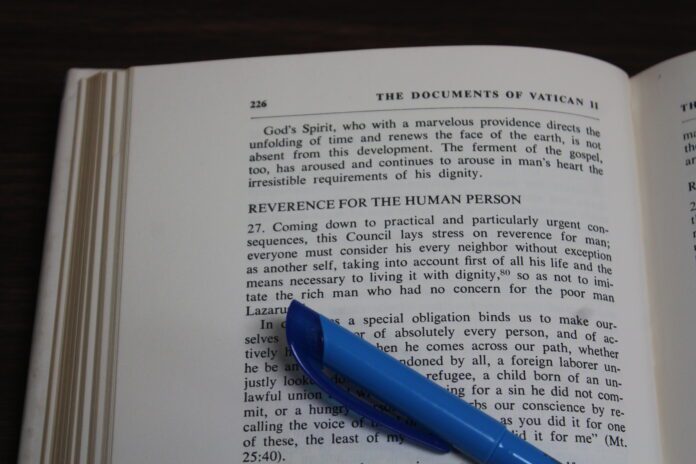
Do we dare?
It is easy to think that we live in an age where the threat of pornography is worse than ever before. Statistics concerning the impact of pornography on children, teens, and adults is continually mounting. The average age at which a child is first exposed to pornography is continually dropping. Pornography is accessible within seconds to anyone who has a smartphone.
It is hard to imagine how things could possibly be worse.
However, we do not live in the first, or only, pornographic age that the world has seen. Every pagan culture has been a thoroughly pornographic culture.
The early Christians lived in Roman towns where pornography was painted on the walls. Paul converted the city of Corinth, notorious for its brothels. The peoples with which Israel was continually battling were nations with their very roots in sexual immorality. There is nothing new about pornographic culture. Like all sin, it is one of the oldest, dullest parts of human history.
Yet it is not only dull; it is also sickeningly destructive. The pornographic lens violently separates person from body, viewer from relationship and sexual pleasure from the procreative act. On account of all of these violences it is a thoroughly unnatural, immoral act.
At the same time, the one who views pornography is also a sufferer. The use of pornography stems from and foments profound loneliness. Increased use of pornography is unsurprising, then, in a culture where suicide rate are also on the rise.
So what is the answer to this bleak situation? What can answer the deep longings that arise in the hearts of men and women who hate the pornographic culture in which they live, even as they themselves fall victim to it?
The evil of pornography can be discovered by the natural law alone, but the solutions that the secular world offers are often unsatisfying. The secular world falls back on vague assertions of humanity. It coins catchy mottos—like “Porn Kills Love”— while offering no picture of full personhood. It provides a diagnosis, but the longing for an authentic physician remains. The effects, sadly, are often temporary.
As “Gaudium et Spes” so eloquently states, it is Christ who “reveals man to man himself and makes his supreme calling clear.” It is hard to overstate the beauty of this claim. In Christ, an incarnate divine person, human beings can find themselves and come to knowledge of the dignity to which they are beckoned. In Christ, there is neither boredom nor destruction, but newness and wholeness.
The newness that Christ offers, however, is not an updated assertion of self-identity, nor is His wholeness feelgood self-satisfaction. He answers the loneliness of the world by calling mankind to a profound communion of persons. In order to attain this communion of persons, this genuine culture of love, a community must cut away whatever is making it sick.
At the University of Dallas, we are blessed with a community which asserts the goodness of virtue. Do we dare chasten ourselves by excising whatever prevents us from attaining that culture of love?
For the sake of concreteness, let me speak more boldly. Do we dare visit our Spotify account now and delete those rap songs that demean women? Do we dare make the resolution never to watch “Game of Thrones” again? Do we dare throw bikinis and crop tops in the garbage? Do we dare agree, as a community, that “Stacy’s Mom” will not be played at the end of dances?
Do we dare to make the commitment to work out every day—or abstain from that snack— in order to discipline our bodies? Do we dare talk to a friend or fly to the chapel when we are particularly tempted against purity? Do we dare to give up drinking if we find that it leads us into a nearer occasion of sexual sin?
These are not light questions, but they are precisely the questions we need to pose to ourselves in order to grow toward that communion of persons that, at heart, we desire.
Christ commands us to pluck out our eye if it causes us to sin. We are not literally to blind ourselves, nor, unfortunately, can we simply smash our computers and phones (though intentionally giving them up for hours at a time should become habitual).
What Christ’s commandment does entail, I think, is the discarding of those things that do not lead us in any way to the good. Let us reflect then, you and I before interjecting our instinctive “but . . .” on what our consciences are telling us. Then, let us let Christ lead us, to the communion of love that He promises.